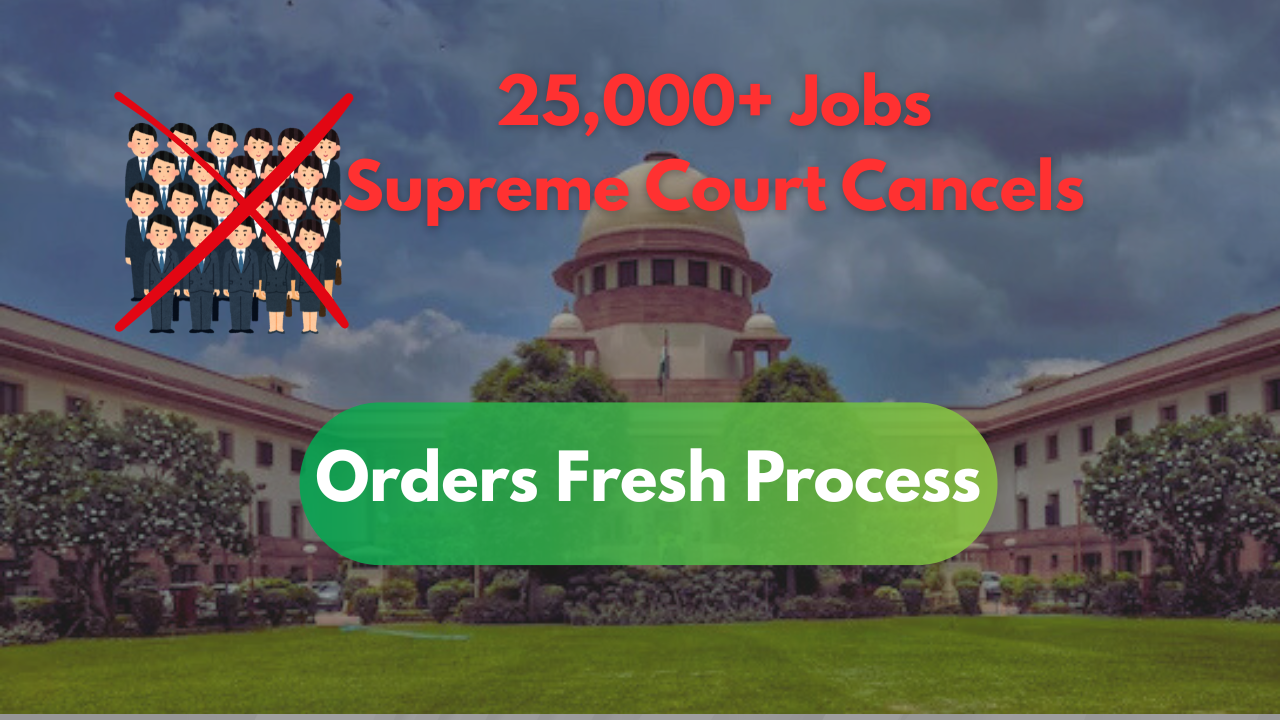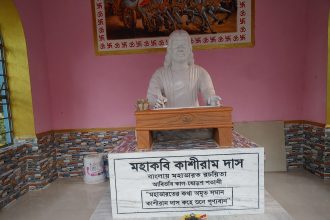This post is also available in:
বাংলাদেশ (Bengali)
हिन्दी (Hindi)
In a landmark judgment with far-reaching implications for the education sector in West Bengal, the Supreme Court of India has upheld the Calcutta High Court’s order, leading to the cancellation of over 25,000 appointments of teachers and non-teaching staff made through the 2016 recruitment process by the West Bengal School Service Commission (SSC). This decision comes as a result of widespread irregularities and fraudulent practices that marred the entire selection procedure. Here’s a breakdown of the verdict and what it means for aspiring candidates and the state’s education system.
The 2016 SSC Recruitment: A Timeline of Irregularities
The 2016 SSC recruitment drive aimed to fill thousands of vacancies for teachers (classes 9-12) and non-teaching staff (Group C & D) in government-aided schools across West Bengal. With approximately 2.3 million candidates applying for around 24,640 positions, the competition was fierce. However, it soon came to light that the recruitment process was riddled with corruption, including the manipulation of OMR sheets and instances of candidates receiving undue advantages in rankings. Investigations revealed a systemic failure, with the SSC itself unable to clearly distinguish between legitimately selected candidates and those who benefited from fraudulent activities. The Central Bureau of Investigation (CBI) even recovered authentic scanned OMR sheet images, further solidifying claims of manipulation.
Supreme Court Upholds Cancellation: Key Highlights of the Verdict
On April 3, 2025, the Supreme Court delivered its verdict, firmly backing the Calcutta High Court’s decision to scrap the entire 2016 recruitment panel. The apex court explicitly stated that the process was “vitiated by manipulation and fraud” and “tainted by serious irregularities” , leaving no room for doubt about the extent of the corruption.
Here are the key takeaways from the Supreme Court’s judgment:
- Cancellation of Appointments: The appointments of 25,753 teachers and non-teaching staff stand cancelled.
- No Salary Return for Most: In a significant relief, the Supreme Court ruled that the majority of those whose appointments were cancelled will not be required to return the salaries and benefits they have already received.
- Exception for Illegally Appointed: This relief does not apply to individuals appointed beyond the sanctioned vacancies or after the designated recruitment period, who will still need to return their earnings with 12% interest as per the Calcutta High Court’s order.
- Fresh Recruitment Ordered: The West Bengal government has been directed to initiate a new recruitment process within three months.
- Eligibility for Reapplication: Candidates whose appointments were cancelled due to the irregularities, but who were not individually implicated in any misconduct, will be eligible to participate in this fresh recruitment drive.
- CBI Investigation Continues: The CBI is permitted to continue its ongoing investigation into the scam.
- State Government’s Failure: The Supreme Court highlighted the state government’s failure to maintain digitized records, contributing to the “systemic fraud”.
What Happens Next? The New Recruitment Process
The Supreme Court’s directive for a fresh recruitment process within three months brings a glimmer of hope for many. While the exact modalities are yet to be announced by the SSC, here’s what we know so far :
- Three-Month Timeframe: The West Bengal government is mandated to complete the new recruitment process within three months. However, initial reports suggest this timeframe might primarily apply to reinstating candidates who previously held government or government-aided jobs. The timeline for the entire new recruitment process for all cancelled positions may be longer.
- Eligibility: Individuals whose appointments were cancelled due to the widespread irregularities, but were not found guilty of any wrongdoing, will be eligible to reapply. Age relaxation will also be provided to these candidates. The eligibility of new applicants who did not participate in the 2016 recruitment is still unclear and will likely be addressed in the official notification from the SSC.
- Former Government Employees: Those who lost their SSC jobs but previously held other government positions can apply to return to their former roles within three months. This period in SSC may be considered a ‘service break’.
Implications and Challenges Ahead
The Supreme Court’s verdict, while crucial for upholding the integrity of the recruitment process, presents significant challenges. The state government must ensure that the new recruitment is conducted with utmost transparency and fairness to rebuild the trust of aspiring candidates. Concerns have already been raised about the involvement of the same recruitment bodies and government entities in the new process.
The cancellation of over 25,000 jobs creates a substantial void in the state’s education system, necessitating a swift and efficient recruitment process to minimize disruption. The logistical challenges of conducting such a large-scale recruitment within the given timeframe will be considerable.
Conclusion: A Step Towards Fair Recruitment
The Supreme Court’s verdict on the West Bengal SSC recruitment scam is a decisive step towards rectifying a deeply flawed process. While it brings uncertainty for those whose appointments were cancelled, it also opens the door for a fresh start based on fairness and merit. Aspiring teachers and non-teaching staff should keep a close watch on the official announcements from the West Bengal School Service Commission for detailed information regarding the new recruitment process, eligibility criteria, and important dates. This verdict underscores the importance of maintaining the sanctity of public service recruitment and ensuring equal opportunities for all eligible candidates. Sources and related content
This post is also available in:
বাংলাদেশ (Bengali)
हिन्दी (Hindi)



